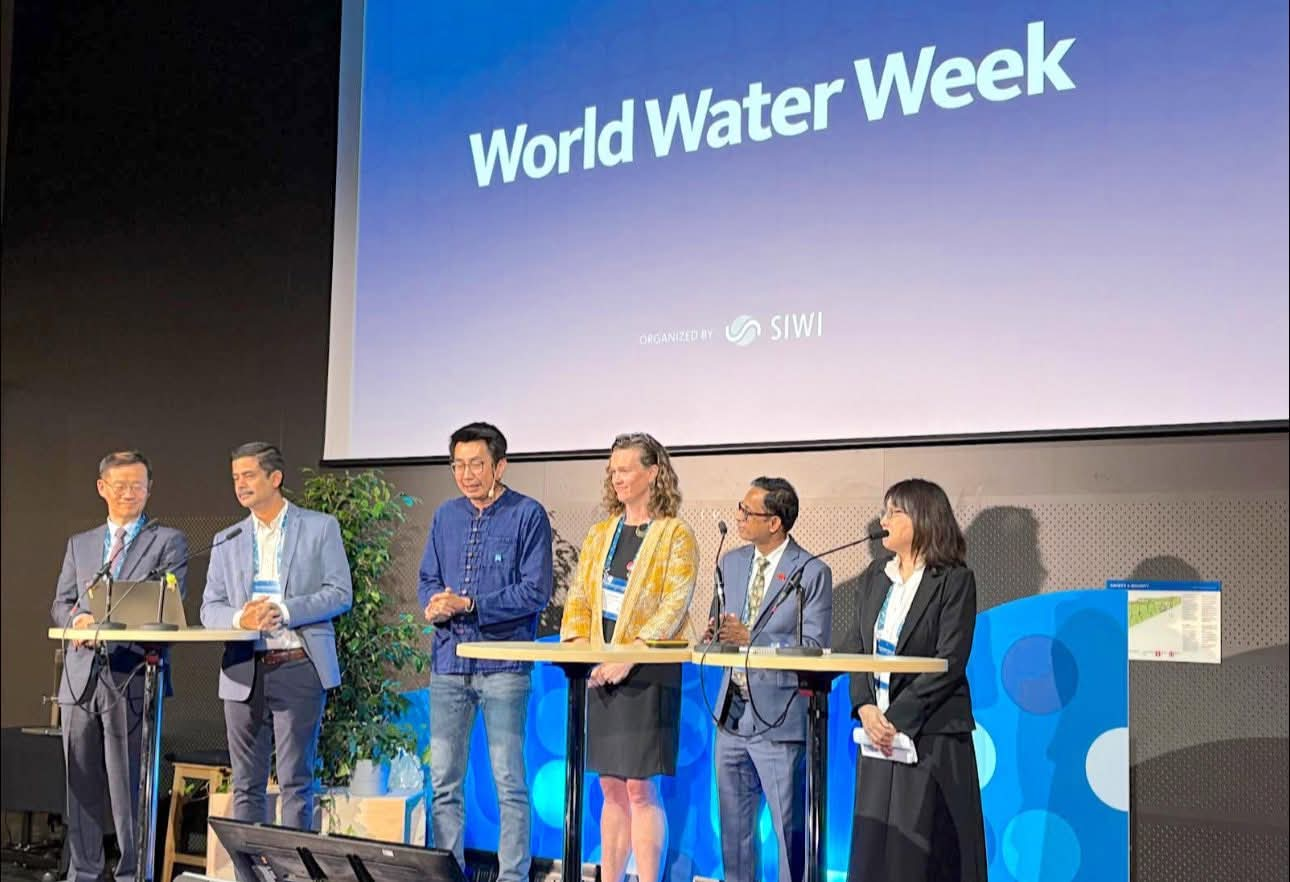Stockholm, Sweden – September 3, 2025
Experts and policymakers gathered at Stockholm World Water Week 2025 to highlight the critical role of early warning systems in saving lives and safeguarding livelihoods against disasters. Despite proven effectiveness, half of the world’s countries still lack comprehensive multi-hazard early warning coverage.
To bridge this gap, the Early Warnings for All (EW4All) Initiative-a UN-led effort co-chaired by the World Meteorological Organization (WMO) and the United Nations Office for Disaster Risk Reduction (UNDRR)-is working to ensure every person on Earth is protected by 2027.
During a dedicated session titled “Early Warnings in Asia-Pacific: Bridging Science with Action”, organized by the Asia-Pacific Water Forum (APWF), the Asian Disaster Preparedness Center (ADPC) shared its operational experience in implementing EW4All.
Dr. Senaka Basnayake, Program Lead for ADPC’s Climate Services, stressed that building resilience starts with a country-owned roadmap, aligning ministries, setting targets, and sequencing investments. He emphasized the need for a lead authority, supported by an inter-ministerial steering group and focal points at local levels. The Lao PDR’s 2024–27 EW4All roadmap was highlighted as a recent example of progress.
ADPC is advancing implementation across WMO’s four pillars-risk knowledge, monitoring and forecasting, warning dissemination, and preparedness/response-while shifting agencies toward impact-based forecasting and warning (IbFW), co-designed with users to ensure practicality and effectiveness.
With strengthened cooperation between global, regional, and national actors, EW4All is steadily moving from commitments to concrete actions. The initiative underlines a shared determination: to ensure no community is left unprotected when hazards strike.